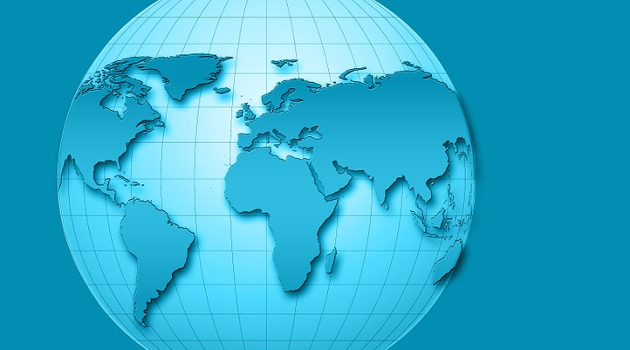What’s the world’s freest nation?
I’ve suggested that Australia as an option if the United States ever suffers a Greek-style collapse, but my answer wasn’t based solely on that country’s level of freedom.
Another option is to look at Economic Freedom of the World, which is an excellent resource, but it only measures the degree to which a nation allows free markets.
If you want to know the world’s freest nation, the best option is to peruse the Human Freedom Index. First released in 2013, it combines economic freedom and personal freedom.
The 2018 version has just been published, and, as you can see, New Zealand is the world’s most-libertarian nation, followed by Switzerland and Hong Kong. The United States is tied with Sweden for #17.
If you scan the top-20 list, you’ll notice that North America, Western Europe, and the Antipodes (Australia and New Zealand) dominate.
And that also is apparent on this map (darker is better). So maybe “western civilization” isn’t so bad after all.
Here is an explanation of the report’s guiding methodology. Simply stated, it’s a ranking of “negative liberty,” which is basically freedom from government coercion.
The Human Freedom Index casts a wide net in an attempt to capture as broad a set of freedoms as could be clearly identified and measured. …Freedom in our usage is a social concept that recognizes the dignity of individuals and is defined by the absence of coercive constraint. …Freedom thus implies that individuals have the right to lead their lives as they wish as long as they respect the equal rights of others. Isaiah Berlin best elucidated this notion of freedom, commonly known as negative liberty. In the simplest terms, negative liberty means noninterference by others. …This index is thus an attempt to measure the extent to which the negative rights of individuals are respected in the countries observed. By negative rights, we mean freedom from interference—predominantly by government—in people’s right to choose to do, say, or think anything they want, provided that it does not infringe on the rights of others to do likewise.
Unsurprisingly, there is a correlation between personal freedom and economic freedom.
Though it’s not a perfect correlation. The Index highlights some of the exceptions.
Some countries ranked consistently high in the human freedom subindexes, including Switzerland and New Zealand, which ranked in the top 10 in both personal and economic freedom. By contrast, some countries that ranked high on personal freedom rank significantly lower in economic freedom. For example, Sweden ranked 3rd in personal freedom but 43rd in economic freedom; Slovenia ranked 23rd in personal freedom but 71st in economic freedom; and Argentina ranked in 42nd place in personal freedom but 160th in economic freedom. Similarly, some countries that ranked high on economic freedom found themselves significantly lower in personal freedom. For example, Singapore ranked in 2nd place in economic freedom while ranking 62nd in personal freedom; the United Arab Emirates ranked 37th in economic freedom but 149th in personal freedom; and Qatar ranked 38th in economic freedom but 134th in personal freedom.
This raises an interesting question. If you had to move, and assuming you couldn’t move to a nation that offered both types of freedom, would you prefer a place like Sweden or a place like Singapore?
 As an economist, my bias would be to choose Singapore.
As an economist, my bias would be to choose Singapore.
But if you look at the nations in the top-10 for personal freedom, they’re all great place to live (and they tend to be very market-oriented other than their big welfare states). So I certainly wouldn’t blame anyone for instead choosing Sweden.
P.S. There are some very attractive micro-states that were not including in the Human Freedom Index, presumably because of inadequate data. I suspect places such as Bermuda, Liechtenstein, Monaco, and the Cayman Islands would all get very high scores if they were included.




